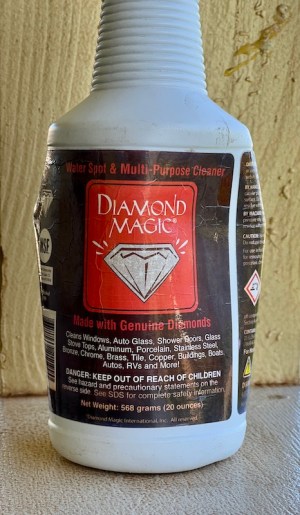Defog Your Dive or Snorkel Mask for Good

A foggy dive mask can ruin your experience while scuba diving or snorkeling! Don’t let it spoil your Maui vacation. Whether diving in Lahaina or snorkeling in Kaanapali, an adequately prepared dive mask is essential for enjoying the ocean. A fog-free mask enhances your underwater visibility and makes you a safer diver or snorkeler. A foggy mask obstructs your view, making it challenging to see hand signals from your dive buddy and to spot sea life. Fortunately, this scuba blog provides expert tips on preparing your dive mask to avoid frustration and make the most of your underwater adventures!
Many divers have a method to best prepare a new mask for scuba diving or snorkeling. Most people say using toothpaste before every dive is the magic cure. While regular white toothpaste helps (NOT the gel kind!), these alternative ideas can defog your new dive mask for good.
4 Defog Tips
Tip 1: Choose the Right Scuba or Snorkeling Mask

Before defogging your mask, you need a suitable mask that fits your face. When shopping around, it is essential to try a variety of brands and skirt sizes. Every face is different, so scuba manufacturers make many masks at various prices. Most professional divers recommend going for the middle-of-the-road option. Don’t buy the cheapest or the most expensive scuba mask.
A good dive mask with a soft silicone skirt should cost $80 to $125. You can use your face size to choose the best-fitting brand and model because every scuba mask gets made differently for different face sizes. Banyan Tree Divers Maui recommends that divers with smaller and narrower faces use the Tusa Freedom Ceos or Scuba Pro Spectra Mini. After testing many different brands for smaller faces, Tusa and Scuba Pro are at the top of the list for comfort, fit, and price!
It’s essential to try on different masks in person at your local dive shop. When testing a mask, you want to hold it up to your face and inhale through your nose to see if the mask skirt sticks around your face. If you get an excellent seal and like the feel of the mask skirt, you can then use the strap to ensure the mask is easily adjustable. Whether you buy a clear or black silicone mask is purely based on personal preference. However, masks with a black silicone skirt help cut the sun’s glare, which is excellent for underwater photography in shallow ocean environments.
Tip 2: Rub Diamond Magic on Each Lens

The best dive mask defog is called Diamond Magic.
Introducing the ultimate defogging solution for scuba divers and snorkelers! While using this product, it’s essential to avoid scratching your lenses. Many may not realize that Diamond Magic effectively cleans stainless steel and is an excellent defogging agent for dive masks. This product is fantastic, but proper application is essential for optimal results.
First, use only a small amount; it’s easy to apply too much accidentally. If you do, wash it off completely, dry the lenses thoroughly, and start again. After using a small amount, gently rub the paste onto the inside of each lens, avoiding the silicone skirt. If the paste sits on the silicone for too long, it may damage the material.
Be careful not to apply too much pressure when rubbing each lens! Allow the paste to sit for 12 hours, then gently rinse everything off with warm water using your fingers. If you accidentally rub too harshly, Diamond Magic may scratch your new lenses easily!
After completing this initial step, use your finger or an old toothbrush to remove any remaining paste from the corners and edges. Next, soak your mask in water for a few hours to ensure the removal of all the Diamond Magic paste. Be careful not to allow any residue to get in your eyes!
Tip 3: Burn Your Dive Mask
 You can burn your dive mask with a lighter if you don’t have something like Diamond Magic. Yes, this is the scariest part of preparing your brand-new dive mask. All new tempered glass lenses have a factory layer of protective silicone that causes each lens to fog when exposed to heat, such as heat from your face.
You can burn your dive mask with a lighter if you don’t have something like Diamond Magic. Yes, this is the scariest part of preparing your brand-new dive mask. All new tempered glass lenses have a factory layer of protective silicone that causes each lens to fog when exposed to heat, such as heat from your face.
Do not attempt to burn a mask with plastic lenses!
People out there will tell you not to attempt to defog your mask with a lighter. So it comes down to how comfortable you are with handling fire. As a dive instructor who has to prepare lenses for new dive masks every year, I can attest that this method works.
Steps to Burn Lens:
|
|
|
|
|
Remember, each lens gets very hot after burning your scuba mask, so let the glass cool down before proceeding to Step 3. Be careful here—glass tends to break when exposed to sudden changes in temperature!
Tip 4: Rub Toothpaste on Each Lens

Using toothpaste may be the best option for improving the clarity of your dive mask, but you might need to apply this method three or four times. Rub regular white toothpaste onto each lens of your mask. The toothpaste has mildly abrasive properties that help remove the factory coating. Make sure to rub the toothpaste for at least one minute. Before rinsing and wiping off the toothpaste, some scuba divers recommend setting the dive mask aside for at least 12 hours.
When you want to remove the toothpaste from your new favorite mask, rinse your snorkeling or diving mask with warm water and baby shampoo. If you use regular shampoo or soap, leave no soapy residue that could later burn your eyes.
If any excess from burning your dive mask gets onto the silicone skirt, you can use a toothbrush and water to remove the discoloration. Better yet, rubbing some Diamond Magic on the silicone works excellently! But then take it right off. Once your scuba diving or snorkeling mask is thoroughly soaked and rinsed, you can happily scuba dive, snorkel, or do whatever you like!
But, regardless of how you fix your new dive mask from fogging, you still need to defog each lens every time you use your mask. We recommend you use one of the following methods before you go scuba diving or snorkeling:
3 Ways to Keep Your Mask Defogged
|
|
|
Final Thoughts About New Dive Masks
A properly fitted and well-prepared dive mask is the most critical component of your scuba diving gear. Take the time to prepare your new mask, as it is essential for enjoying countless dives in the future. To protect your dive mask, secure it to your BCD before entering the ocean.
And once you put it on your face, leave it on your face!
Aloha and HAPPY DIVING
